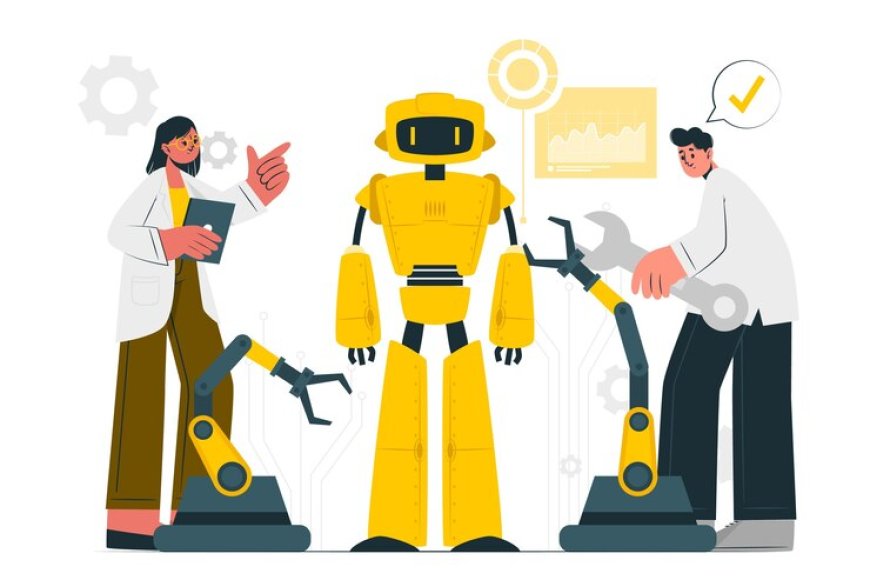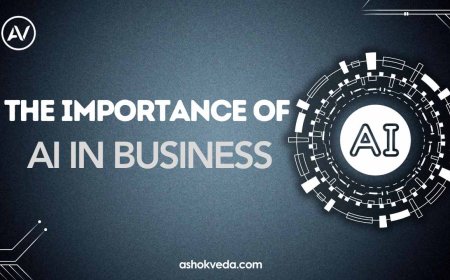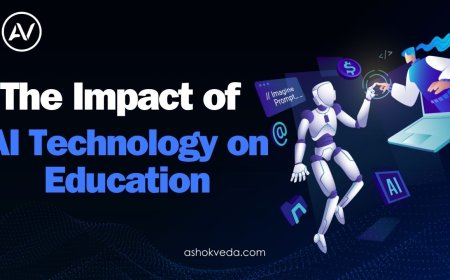AI and Robotics
Explore the dynamic intersection of AI and robotics, unraveling the transformative potential and innovative applications within various industries

Understanding AI and Robotics
Artificial Intelligence (AI) and Robotics are two revolutionary technologies that have the potential to reshape the world as we know it. AI refers to the simulation of human intelligence processes by machines, while Robotics involves the creation of physical machines capable of performing tasks autonomously. These technologies are already making significant impacts in various industries.
AI is the brainpower behind many of today's smart devices and software. It can perform tasks such as language translation, image recognition, and even medical diagnoses. Robotics, on the other hand, manifests in physical forms like drones, self-driving cars, and industrial robots that handle tasks like manufacturing and logistics.
The Diverse Landscape of AI and Robotics
AI and Robotics have diverse applications, and understanding the landscape is crucial. Here are some key points to consider:
-
AI and Robotics are developed and maintained by experts in computer science, engineering, and related fields.
-
Major players in the industry include companies like Google, Tesla, and Boston Dynamics, along with numerous startups working on cutting-edge solutions.
-
AI encompasses various subfields, including Machine Learning, Natural Language Processing, and Computer Vision. Understanding these areas can help you specialize in your interests.
-
Robotics, there are different types such as industrial robots, service robots, and social robots, each with its unique applications and challenges.
How to Become a Part of this Revolution?
To begin a journey in AI and Robotics, it's essential to have a strong commitment and develop certain expertise. Here are some steps to help you get started:
Skills Required
- Programming Proficiency: Develop a strong command of programming languages such as Python, C++, and Java to implement algorithms and develop applications.
- Mathematical Aptitude: A solid understanding of linear algebra, calculus, probability, and statistics is crucial for designing and interpreting complex algorithms.
- Machine Learning Expertise: Gain proficiency in machine learning techniques, including supervised and unsupervised learning, as well as knowledge of neural networks and deep learning models.
- Robotics Knowledge: Familiarize yourself with robotics principles, including kinematics, dynamics, and control theory, to understand the design and functioning of robotic systems.
- Problem-Solving Skills: Cultivate a strong analytical mindset and the ability to solve complex problems through critical thinking and creative solutions.
- Continuous Learning: Stay updated with the latest developments in AI and Robotics through continuous learning, research, and participation in relevant courses and workshops.
- Getting Started in AI and Robotics
- Expansion in Business: This refers to the growth of a company, either in terms of revenue, customer base, or market reach. Businesses often aim to expand to increase their influence and profitability.
- Expansion of Knowledge: It signifies the broadening of one's understanding or expertise in a particular subject or field. This could involve exploring new areas, conducting in-depth research, or gaining insights from various sources.
- Physical Expansion: This pertains to the enlargement of a physical entity, such as a building, infrastructure, or land area. It often involves construction or development projects to accommodate growing needs or requirements.
- Population Expansion: This refers to the increase in the number of people living in a specific area, which may lead to urban sprawl, changes in demographics, and the need for more resources and infrastructure.
- Expansion in Science and Technology: This refers to advancements and progress in various scientific and technological fields, leading to the development of new products, services, or solutions that can benefit society and improve the quality of life.
Tips to Start
-
Build a Strong Foundation: Focus on mastering the basics of programming, mathematics, and relevant technical skills before delving into advanced concepts.
-
Hands-on Experience: Seek internships, apprenticeships, or part-time positions in AI and Robotics to gain practical experience and apply theoretical knowledge.
-
Continual Learning: Engage in continuous learning through online courses, workshops, and seminars to stay updated with the latest tools, techniques, and developments in the field.
-
Problem-Solving Skills: Sharpen your problem-solving abilities as AI and Robotics often involve complex challenges that require innovative solutions.
-
Networking: Attend industry events, webinars, and meetups to connect with professionals, exchange ideas, and explore potential opportunities in the field.
AI and Robotics have seen rapid growth in recent years. AI is being used for medical diagnosis, autonomous vehicles, and even in predicting stock market trends. Robotics is used in manufacturing, healthcare, and space exploration. The collaboration between humans and AI is becoming increasingly common, with AI assisting in tasks like customer service and language translation, thereby augmenting human capabilities. The synergy between humans and AI is expected to increase, with AI tools evolving to do more tasks for more people
Continual Learning: Stay updated with the latest developments in AI and Robotics.
Problem Solving: The ability to solve complex problems is invaluable in these fields.
Interdisciplinary Knowledge: Understanding both AI and Robotics can open up new opportunities.
The job opportunities in AI and Robotics are vast and diverse :
-
AI and Robotics Engineer
-
Machine Learning Engineer
-
Data Scientist
-
Research Scientist
-
Robotics Software Engineer
-
Computer Vision Engineer
Salaries in AI and Robotics are highly competitive. The average salary varies based on factors like location, experience, and the specific role. As of my last knowledge update in 2022, AI and Robotics professionals can earn between $80,000 to $150,000 annually, with the potential for even higher salaries as experience grows
The future of AI and Robotics is promising. As these technologies advance, they will continue to transform industries and create new job opportunities. AI is expected to be more deeply integrated into our daily lives, and Robotics will play a pivotal role in automation and manufacturing processes.
AI and Robotics are leading the way in technological innovation, presenting thrilling career opportunities. To be a part of this revolution, you need a solid educational background, a commitment to ongoing learning, and the flexibility to adapt to a rapidly evolving field. The partnership between humans and AI is a clear indication of the promising future these technologies have. Whether you decide to focus on AI algorithms or the creation of physical robots, your contributions will help create a world where machines and humans collaborate to accomplish extraordinary achievements. The path may be demanding, but the possibilities in the realm of AI and Robotics are limitless.





































